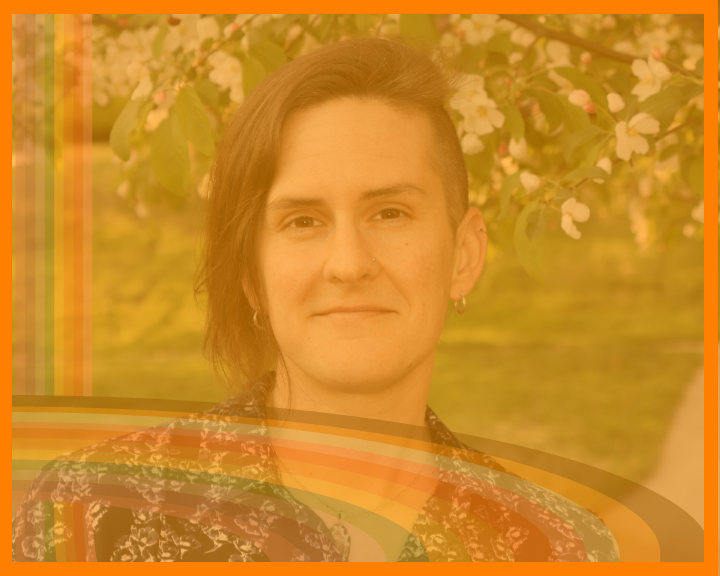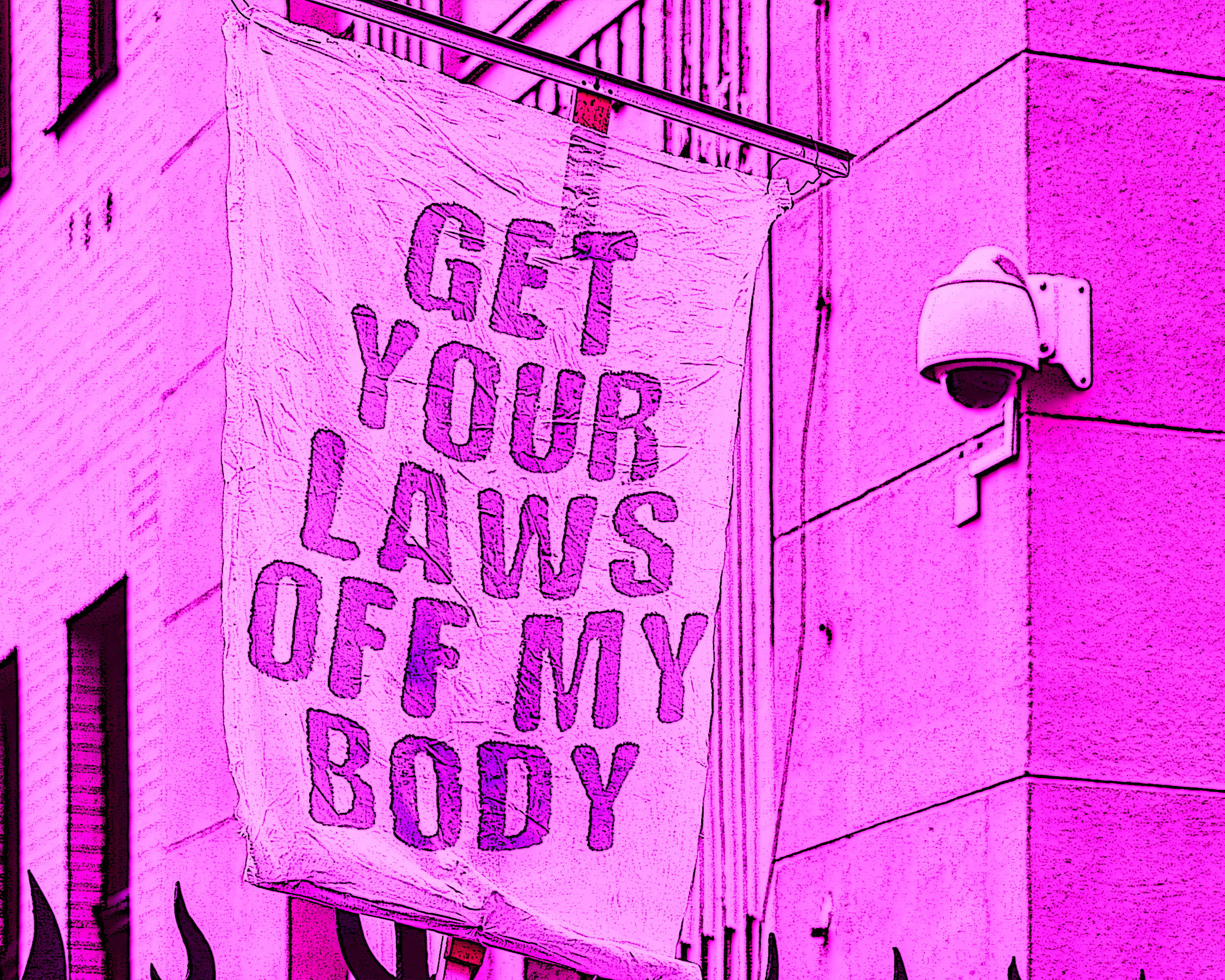The opening scene in the sixth chapter of Mark is one that too many of us find familiar: Jesus, having left home to discover who he is, the call of God on his life, the literally miraculous fullness of his being, goes home.
He returns to the synagogue. These are the friends, family, and neighbors who taught him to be a person. The ones that raised him up to love creation and the divine, to seek truth, holiness, and justice. But also the ones who always wished Jesus would be a little quieter, ask fewer questions, quit pushing so many boundaries.
He returns to the synagogue. These are the friends, family, and neighbors who taught him to be a person.
He begins to teach them.
There are things he can teach, now. Things that had always been true but are now made newly manifest in his very person. Miracles coming to fruition in his own body, layers of meaning uncovered in the holy stories, truths that had lived for years on the tip of his tongue, now ready to roll off into willing hearts. Many had been healed or freed or radicalized by his teachings as he travelled. And now, here he is, back at home again.
As he teaches, they are amazed. Surprised. Scandalized. Repulsed, say some translations. They fall into the sin of disbelief. “Who does this kid think he is,” they sneer. He was Mary’s kid, the one that might not even have a “legitimate” father. They had decided who he was long ago, and whether their image of him was good, bad, or neutral, they weren’t about to let him redefine himself– especially not when he deigned to tell them about the scriptures, to teach them about holiness, to challenge them to question who they were.
As he teaches, they are amazed. Surprised. Scandalized. Repulsed, say some translations. They fall into the sin of disbelief.
Too many of us know this story in the pit of our stomachs, the catch in our throats.
Despite the structures that demand our performance of straightness, of cis-ness, of the binary, we somehow found an out. We discovered closeness, connection, identity, and language for who we truly are. We find our true kin and we choose one another.
We discovered closeness, connection, identity, and language for who we truly are. We find our true kin and we choose one another.
And then we go home. We try to explain the miracles we’ve experienced. Some are amazed. Some merely surprised. Some scandalized. Some repulsed. They built those closets for us, and they won’t let us so easily leave the wreckage. Who are we anyway, to tell them what it means to be free? To be whole? That might require them to examine their surroundings, to see their role in our captivity – or worse, in their own.
Too often, we are literally disbelieved.
“It’s a phase,” we hear.
“God doesn’t make mistakes,” they say.
“There are only two genders,” someone grumbles.
We expend so much energy trying variously to convince, placate, or fight them.
Perhaps we could simply find validation and rest in what Jesus says next: “Prophets are honored everywhere except in their own hometowns, among their relatives, and in their own households.”
Perhaps we could simply find validation and rest in what Jesus says next: “Prophets are honored everywhere except in their own hometowns, among their relatives, and in their own households.”
The scriptures say that he was unable to do miracles among them due to their disbelief. How many LGBTQ people, prophets of a liberated future, are stripped of their power by the sinful disbelief of their families of origin? This sin can be deadly – spiritually, emotionally, and physically.
Jesus, in his wisdom, moves on. Notably, he never sets foot in a synagogue again in the book of Mark. Perhaps Jesus, like many of his queer and trans children, must find his way home without the religious institutions that have failed him.
Jesus, in his wisdom, moves on. Notably, he never sets foot in a synagogue again in the book of Mark.
Walking away from the synagogue that raised him, however, does not stop him from seeking and even building communities of faith. He continues teaching in the villages and cities beyond his home. He does not do this alone.
He gathers the Twelve, his beloveds. The ones who see him for who he is, just as he sees them for their true selves. He instructs them on what they need to change the world – it’s less than they expect. There is abundance waiting for them, among those who are ready and willing to transform alongside them.
Like Jesus, we are called to find and choose and gather our queer and queer-loving kin. To build family, resource one another, and go out to change the world.
Jesus offers them and us a critical instruction: “If a place doesn’t welcome you or listen to you, as you leave, shake the dust off your feet as a witness against them.”
In a time when hospitality was culturally paramount and washing the dirty desert feet of guests was the responsibility of any good host, dusty feet demonstrated a failure of basic decency. Jesus suggests that while we travel through this life to spread liberation and queer love, those who truly reject us have failed, not us. We have a right and even a responsibility to brush that dirt off our shoulders and leave, not letting our bright souls gather dust while we beg to be welcomed by those who have failed us.
Jesus suggests that while we travel through this life to spread liberation and queer love, those who truly reject us have failed, not us.
Our queer Jesus is infinitely loving, generous, and kind. And he demonstrates to us how critical boundaries are. How generous lovingkindess begins with the self. Jesus does not say “if you leave” but “when.” With this instruction, Jesus acts in solidarity with all of us whose leaving is faithful: the queer teen who runs away from their abusive home, the trans woman who leaves her partner because he deadnames her during fights, the nonbinary person who walks away from the church for good in search of God.
The rest of Mark’s sixth chapter highlights even more experiences common to LGBTQ people of faith. After the sending out of the Twelve, the author detours back to John the Baptizer, a radical forerunner of Jesus. Like many queer people, John’s wildly transgressive life is a threat to empire. He challenges the excesses of those in power, exposes how bereft the marriage between Herod and Herodias is, even if it is deemed socially acceptable while other holier intimacies are decried as “sinful.”
Like many queer people, John’s wildly transgressive life is a threat to empire.
Queerness is anti-empire, an inherent threat to patriarchy, misogyny and normative family structures. This is the reason for the current wave of anti-queer and anti-trans legislation being drafted or passed at this very moment around the country – to control bodies, to narrow expressions of gender and intimacy and family, to recreate the oppressive hierarchies of cisherteronormativity.
Queerness is anti-empire, an inherent threat to patriarchy, misogyny and normative family structures.
Because left unchecked, we the prophets of the queer, trans, nonbinary unKingdom will unseat the powerful. Our mere existence is resistance. Though the empire responds to us (like John) with mechanisms of death, our faith calls us to sing aloud our liberation, to keep teaching and preaching the world to come, and to know that where we are defeated, Jesus continues on ahead of us in the work.
He does so with beautiful flair in the next passage, the feeding of 5,000 people. This movement is growing, we see. Not only does it defy the synagogue, it defies the scarcity logic of capitalism that says we must all fend for ourselves.
After a long day of teaching, the disciples urge Jesus to send the people away to go feed themselves. “You feed them,” he says. Logically, their meager resources couldn’t begin to be enough for all. And yet, the queerly expansive abundance of Jesus demonstrates that with generosity and thanksgiving, there is more than enough for all. When we defy binaries and normative expectations, we discover a cornucopia of queerness that provides for far more than we had imagined. The new queer kingdom is truly for all.
And yet, the queerly expansive abundance of Jesus demonstrates that with generosity and thanksgiving, there is more than enough for all.
After this miracle, the disciples witness Jesus walking on water. We expect them to be jubilant, but instead they are terrified and confused. This, too, is a common queer experience – our beloveds, our kin, even our magical, queer, trans, nonbinary chosen ones, see us unfold into glory and respond not with joy but with fear. What happens when they don’t fully understand the expansive power of our spirit and expression? Perhaps they are cis and misunderstand transness, perhaps they are binary and can’t see the fullness of gender bending, perhaps they are white and don’t understand what it means to be a QTPOC.
This, too, is a common queer experience – our beloveds, our kin, even our magical, queer, trans, nonbinary chosen ones, see us unfold into glory and respond not with joy but with fear.
We learn again that we are not alone, and Jesus, who feels that disappointment in our chest, offers both solidarity and the wisdom of his example. He tells his beloved to be encouraged and not to fear. Jesus knows that it is fear that keeps us putting pieces of ourselves in closets long after we thought we were out. Even more so when we try to sweep bits of one another back into hiding. As long as we continue to journey together in love, we must encourage one another. Perfect love will drive out the fear that binds us, and we will be liberated into wholeness and holiness.
We see the fruits of that liberation in the final passage of the chapter – Jesus, now fully recognized by the people. They are drawn to him with hopeful expectation. Perhaps they, too, can be made free. His liberation is contagious, with all who touch even the hem of his clothing finding themselves healed.
His liberation is contagious, with all who touch even the hem of his clothing finding themselves healed.
This too, is the story of queer liberation. When we are made whole, we are holy. When we are seen, we are powerful. And that holiness burns like a flame, drawing in those who long to be healed into wholeness with us. Existence is not only resistance, it becomes a force for transformation, and together with the queer Christ, we can all heal into wholeness.
This too, is the story of queer liberation. When we are made whole, we are holy. When we are seen, we are powerful.
Rev. Jonah P. Overton (they/them) is a community organizer, creator of the podcasts “Jonah & the Peacock” and “Christian Queeries,”, and the lead pastor of Zao MKE Church in Milwaukee, WI. As a young queer and trans clergy person, Jonah has been called into ministry to build the church as queer space and organize communities and churches towards justice and liberation.



Unbound Social